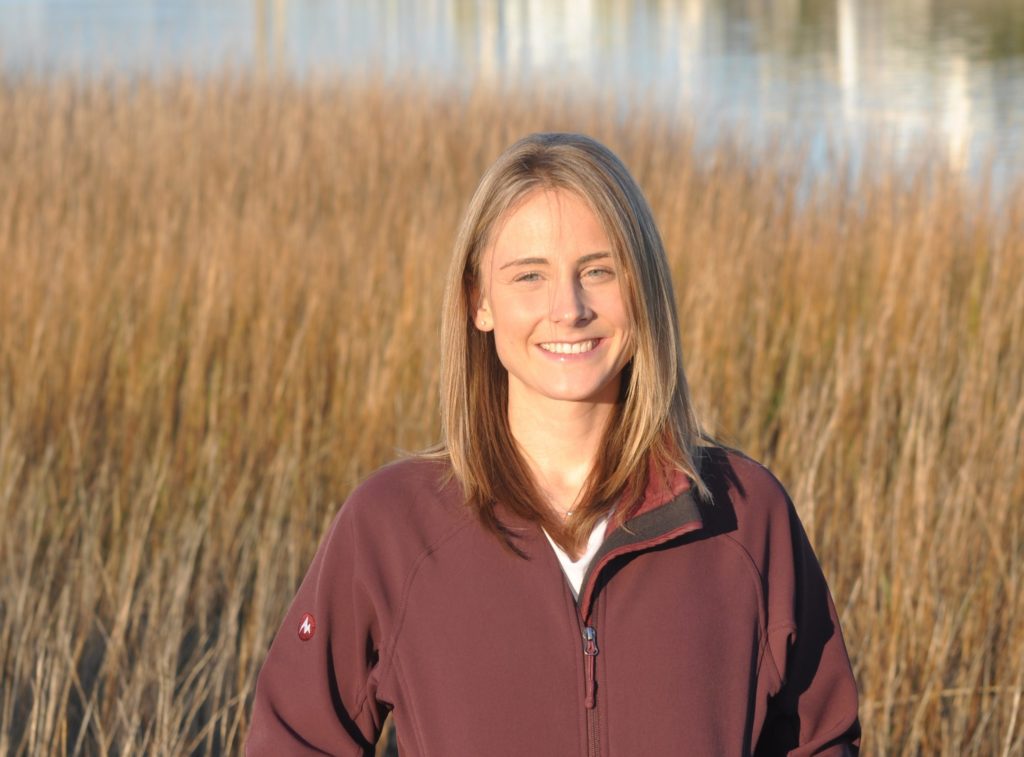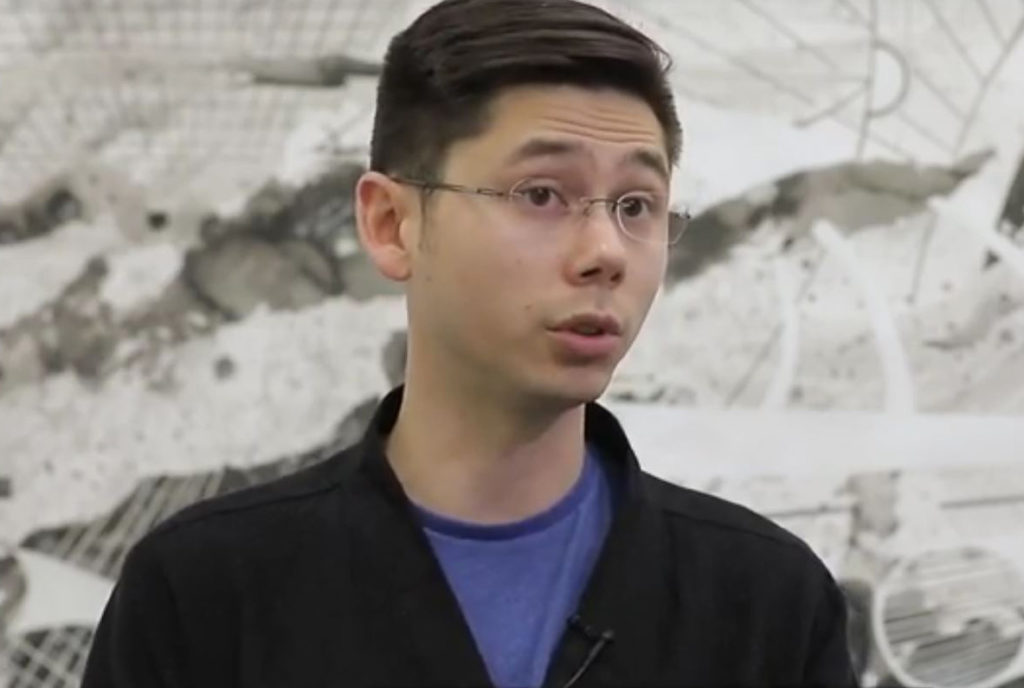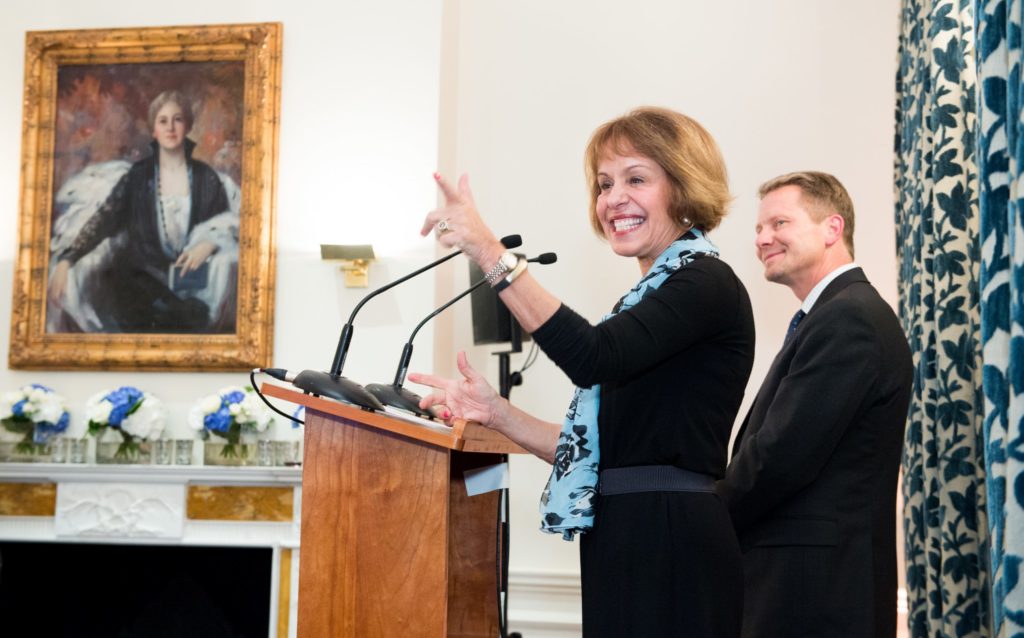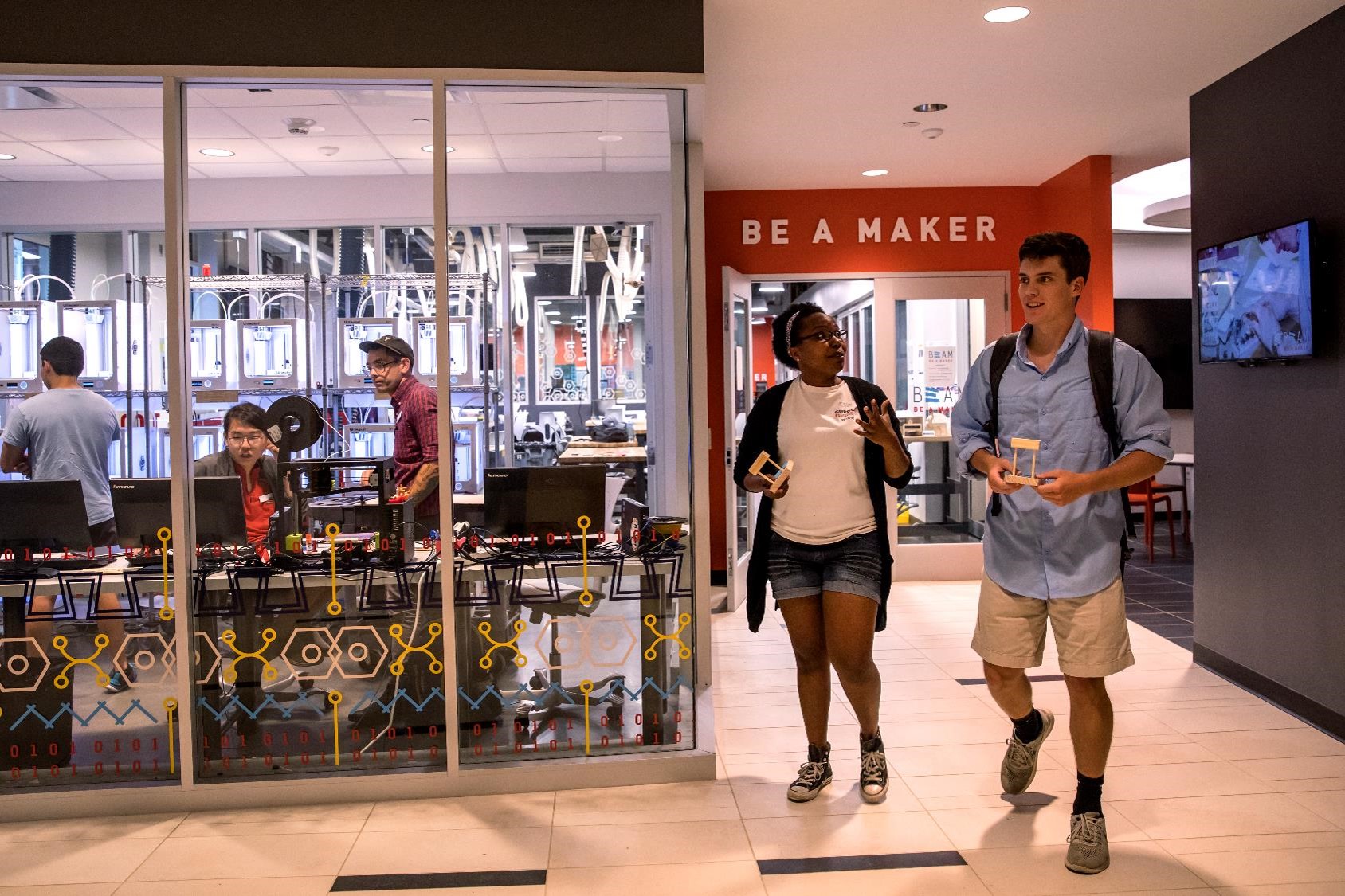
When students take a course, they define success in any number of ways: good grades, learning new skills or expanding their knowledge, to name a few. You’ll find very few, however, who define success as experiencing failure. Yet, a new design and making course at the University of North Carolina at Chapel Hill is teaching students that in order to move forward, they must first endure a few steps backwards.
Coming off a first successful semester in the spring of 2018, the course Introduction to Design and Making is exposing Carolina students to the coolest state-of-the-art technology, while also proving that hard work and perseverance through failure can be rewarding.
The course, which is offered through the Department of Applied Physical Sciences in the College of Arts & Sciences as APPL 110, sparks innovation through creative prototyping. It’s designed to incubate an entrepreneurial mindset in students, while arming them with the tools to make objects they can share with friends or even put on the market.
Innovate Carolina provided materials and additional resources, serving as a catalyst to jumpstart the course. As the University-wide initiative for innovation and entrepreneurship (I&E), Innovate Carolina and its partners in the in the I&E campus network provide students, faculty and staff with the tools and resources they need to turn their ideas into innovations.
“The vision for the class is to bring together concepts of design thinking and experiential making,” says Glenn Walters, course instructor and director of the Environmental Sciences and Engineering Design Center at UNC’s Gillings School of Global Public Health. “The course is a deep dive into what’s involved in the design process, giving students a broad familiarity with digital fabrication technologies and giving them in-depth experience using those technologies to develop physical prototypes.”
But the course is not for the faint of heart. Accepting and learning from failure can be the most challenging concept for students to grasp. In this class, failure is embraced and even celebrated. “The goal is to be successful with assignments, but you’ll have to fail – maybe multiple times – to get there,” says Walters.
The class explores design through active making, discussion, presentation and self-evaluation. It challenges students to learn and embrace that repetition is required to develop and get prototypes right. Class assignments include group work around processing pre-made objects and double-sided engraving as well as individual assignments such as creating designs with a 3D printer.
“It’s not exactly like brainstorming a business plan. Students have to learn that the key to all design prototyping is how to be patient and persevere,” says Walters. “Students quickly realize there’s no choice but to plan their time accordingly to keep working on their prototype until it’s just right.”
Students also discovered a bonus benefit throughout the semester – realizing they can apply the skills they learn to other classes and in other areas of life.
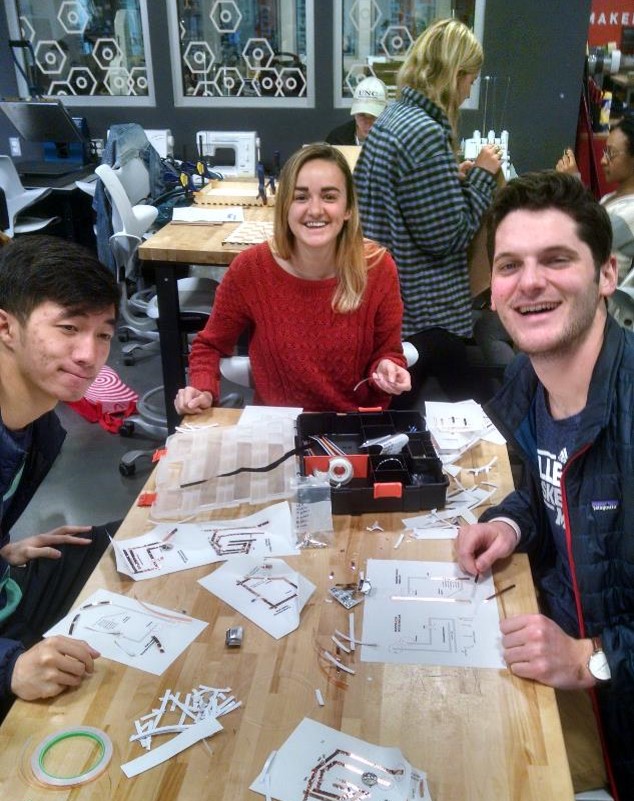
“One student shared that they signed up for the course because they wanted to just do what’s required to get the grade,” says Walters. “But by the end of the course, that same student had flipped their outlook, learning a better way to work with groups and translate that skill to other classes as well.”
In teaching the course, Walters pulls from his own experiences and approach to the world.
“People can be inhibited in their ability to understand design and making. The biggest obstacle can be intimidation by technology,” says Walters. “In order to foster the learning process, I spend time helping students work through their assignments and dealing with the fact they won’t get it right the first time. It’s about getting them to accept that principle and to keep trying until it’s right.”
The course is the brainchild of Walters, Rich Goldberg, research associate professor in the Department of Biomedical Engineering, and Rich Superfine, Taylor-Williams Distinguished Professor in the Department of Physics and Astronomy and professor in the Department of Applied Physical Sciences.
Anyone interested in design and making can register for the course, no matter their major. The inaugural class included a broad cross section of those intrigued by the idea of learning to design and make objects. Students included everyone from freshmen to graduate students and those with a variety of majors, including art, biomedical engineering, environmental science, communications, and media and journalism.
The class brought together students with no experience in entrepreneurship to others who are in the early stages of building businesses. Some of the students had already created businesses. Much like a startup environment, the course teaches students how to collaborate with others and use their unique skills to work toward a common objective.
“Students have no choice but to get the work done,” says Walters. “Getting the taste for failure… that’s how you determine if you’re an entrepreneur. If you’re still excited about it, you will come out of the class jazzed up and fired up.”
Fall 2018 registration for the class is still open. The course will be held on Tuesdays and Thursdays in the newly remodeled active learning space in Phillips Hall, which will work well for group hands-on activities and learning.
“Our goal is to create a larger community of informed makers that offer greater benefits to the entrepreneurship community as well,” says Walters.
Students from any major are welcome and encouraged to take the class. There are no course pre-requisites, but a required orientation training will take place ahead of the class.
Story courtesy of Innovate Carolina

